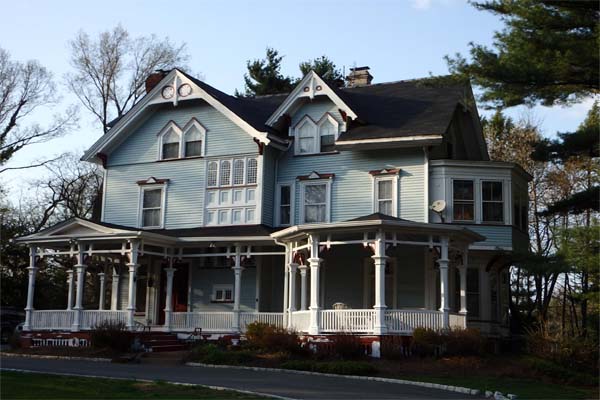Vero Beach insurance can be challenging for older homes. Older homes – especially homes that may have been built in the late 1800s or early 1900s – often present issues, both seen and unseen. Even in a well-maintained older home, behind the gracefully aging walls may lie unsafe electrical wiring. Beneath the unique bathroom fixtures, bath tubs and sinks there may be inferior plumbing or corroded pipes. These and other conditions could leave to major problems and unexpected expenses. Let's take a look at some special homeowners insurance considerations for older homes.
Vero Beach Insurance: Insuring Special Needs
No doubt owning an older home can be a satisfying source of pride in the workmanship and architecture of a bygone era. Many older homes offer unique features that just aren't prevalent in today's residences. Some homeowners inherit properties that once belonged to their parents or other relatives. In some parts of the U.S. maintaining the "old homestead" is almost a duty that comes with being part of their family heritage.

As charming and nostalgic as an older, historic home may be, they can also pose potential problems if damages occur or repairs are required. Because of this, it's important for homeowners to understand all the "ins and outs" of owning an older home. None the least of which is the type of Vero Beach insurance coverage that may be required.
Typical homeowner's insurance policies provide coverage in the event a fire or other peril causes damage to your home. Usually, of course, a standard homeowner's insurance policy covers the cost of repairs or replacement based on your home's value – less the deductible you carry on your policy. Older homes, however, require special insurance needs.
Older Home Needs
If your home is fifty years old or more, standard building codes and practices have changed dramatically since it was first built. It's a fairly safe bet that older homes fall short of meeting today's electrical and plumbing requirements. In fact, if the electrical or plumbing systems have not been updated, homeowners may find it difficult to obtain insurance coverage on the home.
Many cities and towns throughout the U.S. have ordinances that require an older home or other building to be demolished if it suffers damage to 50% or more of the structure. If the structure is to be rebuilt, it is required to meet the current building codes and specifications. A standard homeowner's insurance policy doesn't cover the undamaged portion of the home. When that occurs, the homeowners may find themselves responsible for tens of thousands of dollars for the cost to demolish and haul away the debris. In addition, if they choose to rebuild, they will be responsible for those costs as well.
In the case of a older home that isn't required to be torn down, it still will require repairs that conform to the current building codes and standards.
In addition to repairing or replacing older homes, there is the major issue of the cost of rebuilding. More often than not, the cost of rebuilding the home is considerably higher than its value – on which the insurance coverage is based. As an example, say a 75-year-old home is valued at $150,000 yet costs $250,000 to completely rebuild, homeowners covered by a typical, standard Vero Beach insurance policy would receive just $150,000 as a claim payment. The remaining $100,000 – if they elected to rebuild the house – would be their responsibility.
The Requirements for Historic Homes
Some older homes may be included as part of a designated historic district in a city or municipality. A home in a historic district carries with it even more requirements and restrictions about how it can be repaired or rebuilt in the event of damage or loss. While new construction materials may be used in the reconstruction or repair, the materials may have to conform to certain historical standards and appearances. Often it is required that new construction must use materials that comply with the stated regulations for the historic district.
As one can imagine, if specific materials are required for repair or construction, the building cost will likely be higher than that of normal construction. This, of course, can create quite a financial obligation for the homeowner. As such, it's vital to be aware of the requirements that come with ownership of an older home – especially one that's designated as an historic home. In addition, simple repairs that aren't performed in accordance with the required ordinances may be subject to penalties and fines, and will be required to be redone in order to comply with the law.
Ordinance and Law Coverage
While traditional Vero Beach insurance policies do provide some building ordinance coverage to enable repairs to comply with local laws, the coverage has limits. As a general rule, it won't be enough to cover the demolition of an undamaged part of the home and rebuilding it according to the current codes and requirements. By increasing the ordinance and law coverage, a policy will be able to include all costs if demolition and rebuilding is required.
Vero Beach insurance experts recommend adding ordinance and law coverage to all older homes that are required by law to be demolished in the event it's partially damaged by fire or other peril. They cite this coverage as the best way to protect their property from repair and replacement costs that they may not be able to absorb in the absence of sufficient coverage.
You can find more articles pertaining to Vero Beach insurance in the Vero Beach Insurance section of our site below Vero Beach Real Estate Categories in the column to your right.
Remember, we also post tips daily on Twitter and Facebook. Check us out there, too.

